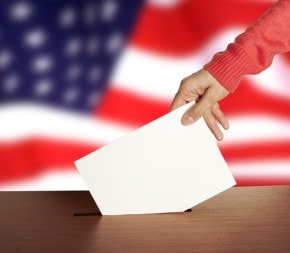The Surprisingly Serious Repercussions of Voting in Federal Elections as a Noncitizen

Many people would probably be surprised to know that one of the most serious offenses a non-citizen can commit in terms of consequences to their lawful immigration status is to vote in an election in which they are not authorized. If a Legal Permanent Resident (or “green card” holder), does vote in any election in which citizenship is required, they can be placed into removal proceedings and eventually ordered deported. There are very few options for relief for people in this situation, even if they have decades of legal presence in the U.S., no criminal record, and extensive family ties. Last week, the Board of Immigration Appeals (BIA) solidified the seriousness and rigidity of unauthorized voting by issuing a precedent decision holding that a person is deportable regardless of whether or not they knew that they were not allowed to participate in the election.
In Matter of Fitzpatrick, 26 I&N Dec. 559 (BIA 2015), the BIA held that a respondent, who was a Legal Permanent Resident, was deportable under INA section 237(a)(6) as an alien who voted in violation of law. The court held INA 237(a)(6) was an offense of “general,” not “specific” intent. In other words, the act of unauthorized voting does not need to have been intentional. This means that even if an individual’s actions were truly unintentional, which could perhaps be the case when there is a language barrier or even a justifiable misunderstanding (such as if a person was trying to vote in a school board election in which they were legally authorized to vote but ended up voting in a federal election that was on the same ballot), the law kicks in and can render the violator deportable.
The only exception to this rule is in cases in which the respondent can prove that 1) the election was held in part for some other purpose which 2) the respondent would have been authorized to participate in; and 3) “voting for the other purpose was conducted independently of voting for a candidate for federal offices, in such a manner that an alien has the opportunity to vote for such other purpose, but not an opportunity to vote for a candidate for any one or more of such federal offices.” This narrow exception is rigidly interpreted, and few elections would meet its criteria of allowing non-U.S. citizens to vote for one item on a ballot but not another.
While this decision doesn’t necessarily break new ground, in that we already knew that voting without authorization carried extraordinarily harsh consequences for non-citizens, it reinforces the need to communicate the rule to clients when they become green card holders. Because the benefit an individual gets from voting in an election when they’re not authorized is enormously outweighed by the risk they are incurring by doing so, my guess is that the vast majority of people who do it either 1) don’t realize what they’re doing is unlawful, or 2) think that because they are authorized to vote in some sort of local election that they’re also authorized to vote on all the matters included on a general election ballot.
Given the absolutely devastating consequences unauthorized voting can have, I hope that immigration attorneys, local entities responsible for administrating elections, and community organizations of all kinds will help to get the word out: when in doubt, DON’T VOTE until you’re a Citizen.
